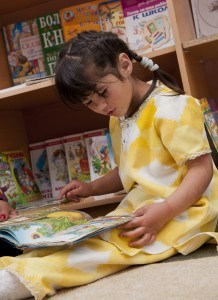My interests in International Development and Management arose when I was appointed as a Grants Finance Officer at Aga Khan Foundation (AKF), Tajikistan in 2008. That interesting and challenging job exposed me to many aspects of development, especially resource mobilization, donor liaising, and effective grants management and monitoring.
Before that, I had worked in the private sector on microfinance. When I shifted to the non-profit sphere, I could see how varied projects could be within one system, across the wide range of sectors like education, health, infrastructure, civil society, and rural development. In the course of my six years at AKF Tajikistan I contributed to establishing and improving an efficient Grants Management System. It was an enormous learning experience for me. Each new project brought its own donor requirements and conditions, new target groups, new challenges, new weaknesses, and new strengths. All those dynamics made my work more interesting.

In Tajikistan the Reading for Children project, which fosters children’s love of reading, is supported by a grant from the U.S. Agency for International Development. In managing grants, AKF grants officers work with a wide range of activities and donor agencies.
In Tajikistan the Reading for Children project, which fosters children’s love of reading, is supported by a grant from the U.S. Agency for International Development. In managing grants, AKF grants officers work with a wide range of activities and donor agencies.
In my opinion, staff working in developing countries can significantly improve their effectiveness if they get an opportunity to work in a developed country as well. My fellowship at the Aga Khan Foundation U.S.A. (AKF USA) this year is providing me with such a unique opportunity.
Since my work has been in grants management and I plan to continue working in this area, I approached the AKF USA Fellowship wanting to learn more about the grant management systems from a donor-country perspective, including strategies for approaching donors, resource mobilization techniques, and systems for supporting grants management in AKF’s developing country units. Moreover, this fellowship informs me about many large, key donors based in the United States, including the U.S. Agency for International Development (USAID), the U.S. Department of Agriculture and private foundations, allowing me to interact with them and learn about their working and organizational procedures.
At the same time, with my experience managing USAID grants with AKF Tajikistan I am familiar with their rules and regulations. So at AKF USA I help in managing and tracking U.S. Government grants in developing country settings, bringing to the attention of DC staff certain compliance challenges from that perspective. For example, USAID has restrictions on countries from which its projects can make procurements, yet compliance has implications for budgets. Dushanbe markets are filled with less-expensive Russian and Chinese products, for example, that cannot be used.
My international experience in Washington is showing me many things about NGO management, financial management, fundraising, public advocacy, human resources, capital management, and development. Working with AKF USA is giving me a chance to learn more about interaction and partnership between non-governmental, state and commercial organizations that share the goal of promoting social and economic development.
Finally, this fellowship enables me to grow a professional network with whom I will remain connected throughout my career, and allows me to live in a multicultural context that will broaden my outlook.
By Lola Davlatshoeva, Finance Fellow for Aga Khan Foundation U.S.A.